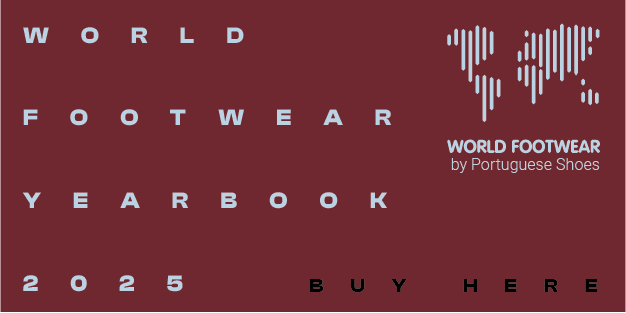Disputes in South China Sea impact footwear industry

Footwear factories operating in Vietnam halted production and shut their doors after anti-China protests
According to Associated Press, the renowned American news agency, anti-China mobs torched up to 15 foreign-owned factories and trashed many more in southern Vietnam amongst rising anger over China’s recent installment of an oil rig in disputed Southeast Asian waters, close to the Paracel Islands, controlled by China but claimed by Hanoi.
China claims almost the entire South China Sea, rejecting rival claims by Vietnam, the Philippines, Taiwan, Malaysia to parts of it. According to the Associated Press, Vietnam is said to have sent vessels to try and disrupt the rig, which have clashed with Chinese ships sent to protect the oil rig. The incidents in Vietnam followed quickly, and, according to the same source, the unrest at several industrial parks pursued protests by up to 20 000 workers at the complexes in Binh Duong province. Smaller groups are said to have attacked factories they believed were Chinese-run. Groups of men on motorbikes remained on the streets and at some point all the factories in the area were closed, while riot police had been stationed around the area.
There are economic stakes for both countries if the standoff and tensions continue. China is Vietnam’s biggest trading partner, exporting billions of dollars of raw materials each year for factories producing goods including clothes, shoes and smartphones as well as cheap consumer goods. Beijing is also becoming an important investor in Vietnam, owning several important factories. The implications of this dispute and these incidents are unknown but can be serious if they start to impact the companies’ ability to meet orders and deliver the products to the market, and if incidents intensify they can end up impacting severely imports from the country.
The footwear companies already started to react to the events. Puma confirmed the company closed its factories in the country on Thursday. Yue Yuen Industrial, the Hong Kong supplier of athletic shoes for Nike, adidas, Reebok, New Balance, Puma, Converse and Asics, confirmed they too closed down their factories in Vietnam.
China has advised their citizens headed to or in Vietnam to be careful with their travel plans, and urged Chinese residents and organizations in Vietnam to raise their risk awareness and strengthen security. The Ministry of Foreign Affairs of Republic of China has issued several press communications on the situation and on the 14th of May they commented the situation: ”May 13 riots in Vietnam by people protesting mainland China’s deployment of an oil drilling platform in the waters off the Shisha (Paracel) Islands have jeopardized Taiwan’s businesspeople, Minister Lin called on the Vietnamese government to act decisively to stabilize the situation, restore order, and ensure the personal safety of Taiwan businesspeople. He also requested that, once the situation has calmed down, the Vietnam government would act responsibly by looking into compensating Taiwan businesspeople for damage done to their manufacturing facilities. Representative Bui promised that the greatest possible effort would be made to protect the investments of Taiwan and other foreign partners in Vietnam, and that his government would dispatch military and public security forces to put an end to unrest and restore social order.”
While the consequences of the protests are still unknown they will surely go beyond the Chinese and Vietnamese borders, as some of the major suppliers of European and American companies are based in both of these countries.
China claims almost the entire South China Sea, rejecting rival claims by Vietnam, the Philippines, Taiwan, Malaysia to parts of it. According to the Associated Press, Vietnam is said to have sent vessels to try and disrupt the rig, which have clashed with Chinese ships sent to protect the oil rig. The incidents in Vietnam followed quickly, and, according to the same source, the unrest at several industrial parks pursued protests by up to 20 000 workers at the complexes in Binh Duong province. Smaller groups are said to have attacked factories they believed were Chinese-run. Groups of men on motorbikes remained on the streets and at some point all the factories in the area were closed, while riot police had been stationed around the area.
There are economic stakes for both countries if the standoff and tensions continue. China is Vietnam’s biggest trading partner, exporting billions of dollars of raw materials each year for factories producing goods including clothes, shoes and smartphones as well as cheap consumer goods. Beijing is also becoming an important investor in Vietnam, owning several important factories. The implications of this dispute and these incidents are unknown but can be serious if they start to impact the companies’ ability to meet orders and deliver the products to the market, and if incidents intensify they can end up impacting severely imports from the country.
The footwear companies already started to react to the events. Puma confirmed the company closed its factories in the country on Thursday. Yue Yuen Industrial, the Hong Kong supplier of athletic shoes for Nike, adidas, Reebok, New Balance, Puma, Converse and Asics, confirmed they too closed down their factories in Vietnam.
China has advised their citizens headed to or in Vietnam to be careful with their travel plans, and urged Chinese residents and organizations in Vietnam to raise their risk awareness and strengthen security. The Ministry of Foreign Affairs of Republic of China has issued several press communications on the situation and on the 14th of May they commented the situation: ”May 13 riots in Vietnam by people protesting mainland China’s deployment of an oil drilling platform in the waters off the Shisha (Paracel) Islands have jeopardized Taiwan’s businesspeople, Minister Lin called on the Vietnamese government to act decisively to stabilize the situation, restore order, and ensure the personal safety of Taiwan businesspeople. He also requested that, once the situation has calmed down, the Vietnam government would act responsibly by looking into compensating Taiwan businesspeople for damage done to their manufacturing facilities. Representative Bui promised that the greatest possible effort would be made to protect the investments of Taiwan and other foreign partners in Vietnam, and that his government would dispatch military and public security forces to put an end to unrest and restore social order.”
While the consequences of the protests are still unknown they will surely go beyond the Chinese and Vietnamese borders, as some of the major suppliers of European and American companies are based in both of these countries.















